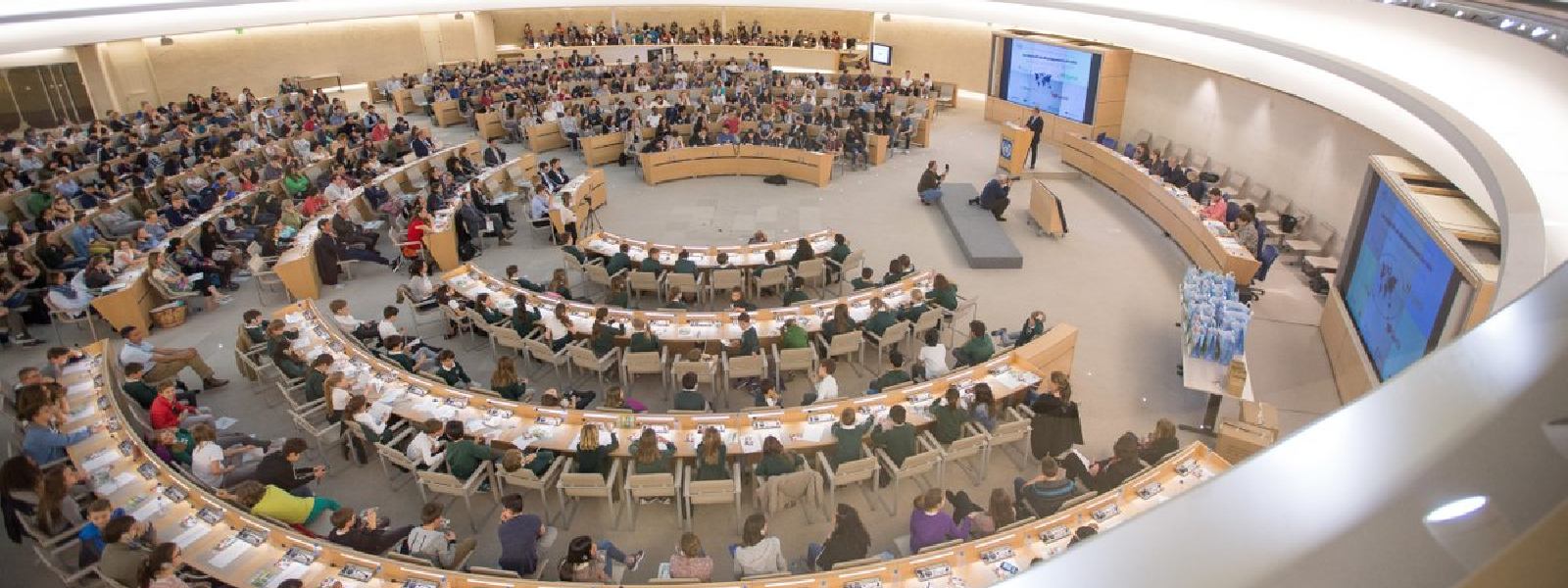.webp)

Sri Lanka’s tussle at the UNHRC: The Council responds to Sri Lanka’s human rights mandate.
Sri Lanka’s new government faced a critical juncture at the 51st session of the UNHRC this month. The council raised the issue that Sri Lanka is in the midst of a serious economic crisis that has severely impacted the human rights of all communities. This has spurred broad-based demands by international organizations and delegations for deeper reforms and accountability. The recent sessions also opened the floodgate for debates on older/unresolved resolutions like the suspension PTA (Prevention of Terrorism Act) to resurface.
The session held on the 12th of September tabled discussions on the faulty government management of the process of prosecuting those responsible for the bombings on Easter 2019. Sri Lankan minister of foreign affairs Ali Sabry and his delegation faced allegations of laxed mechanisms for accountability at the national level: pursuant to resolution 46/1. Acting high commissioner of the UNHRC Nada Al-Nashif urged the government to create an environment for peaceful protest, to implement accountability and transparency in administration. Ali Sabry pressed that the delegation would reject resolution 46/1 because it did not fit within the working framework of the Sri Lankan constitution. He further pledged to replace the PTA with an alternative in accordance and conformity to international standards and preferences. Post-war reconciliation and rehabilitation is being dealt with through domestic measures the delegation held.
Sri Lanka’s supporters and opponents on the council pronounced their comments in staunch statements. China remained amongst Sri Lanka’s primary supporters on the council, postulating that the UNHRC Resolution 46/1 is “a product of politicization”. They maintained that the resolution did not follow the principles of impartiality, objectivity, and non-selectivity and that the Council had not succeeded in promoting and protecting human rights in Sri Lanka. The Chinese delegation went on to reiterate that they would show no tolerance to any country taking advantage of the situation in Sri Lanka to seek self-interest. Amongst the few delegations that showed solidarity with Sri Lanka was The Russian Federation. Russia’s delegation made the statement that “significant progress had been made towards national reconciliation; An office and commission have been set up to investigate human rights violations”. They further defended that the arrests of violent protesters who damaged public property during the riots have been entirely justified and that resolution 46/1 was drafted without the consent of Sri Lanka and therefore would not be endorsed.
China and Russia were among the few influential delegations that pledged their support to Sri Lanka. Contrastingly, the cascade of opponents; namely the United States of America, Canada, India, the European Union and the United Kingdom assigned significant blame to the Sri Lankan government for falling short on the national government’s promises of addressing issues of accountability and reconciliation. Additionally, the delegations called for the suspension of the PTA until it complied with international standards and requirements. India particularly assailed Sri Lanka over the lack of effort exerted on resolving inter-ethnic issues within the country. In what we may assume to be payback for granting access to the Chinese research ship to dock at the Hambantota port (when the Sri Lankan government rejected a request from the Indian government to block the Chinese ship from Sri Lankan harbours), India incriminated Sri Lanka on their reliance on draconian rules and militarisation to secure the position of the government. This contrasts to their moderately neutral posture regarding Sri Lanka in previous council sessions. Personal vendettas therefore played to the disadvantage of Sri Lanka as India ostensibly stood against their neighbour.
Is Sabry's task at the Council simply to conform to the demands of the international family of nations? or to 'protect' the sovereignty of Sri Lanka at the expense of global isolation?
Other Articles
Featured News





.png )





-794314_550x300.jpg)



















.gif)